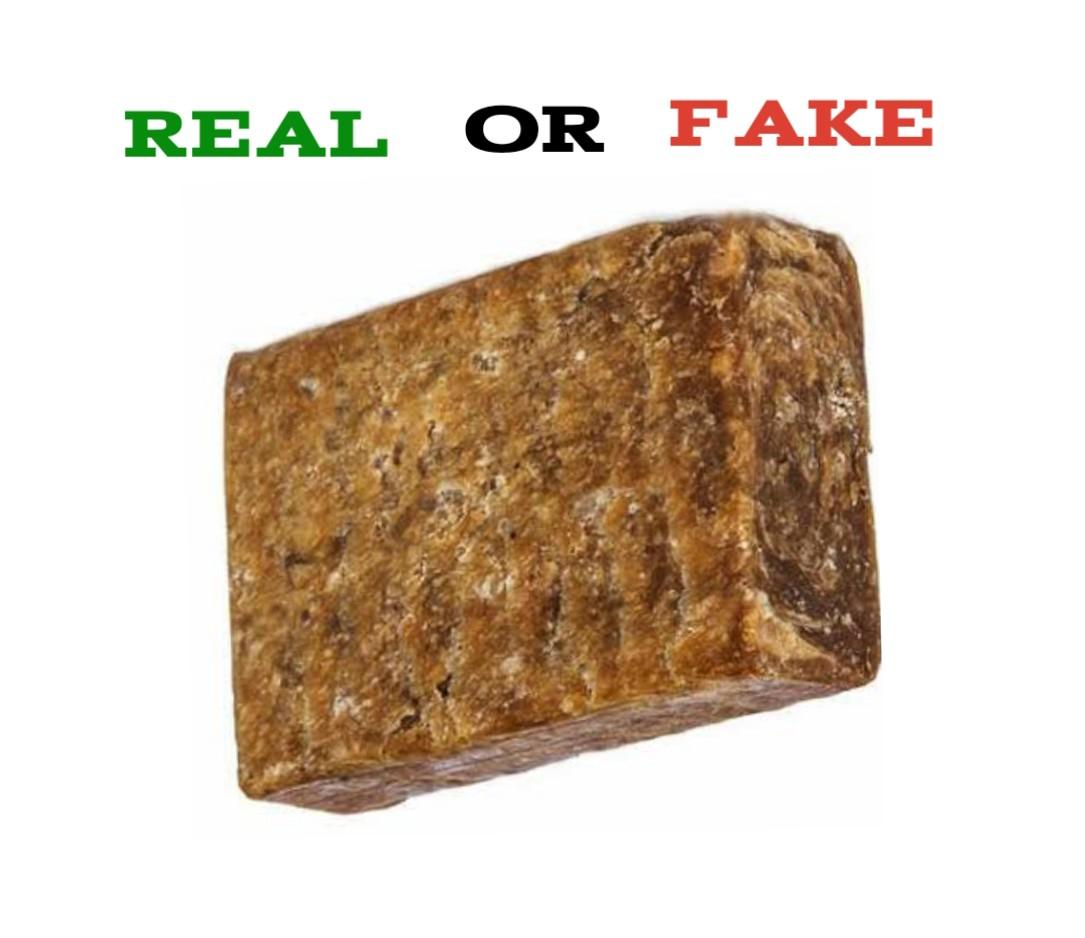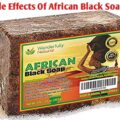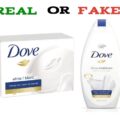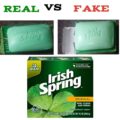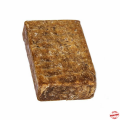African black soap (also called African soap or black soap) is the latest skincare product to reach “holy grail” status, and for good reason. Touted as a solution for breakouts, hyperpigmentation, stretch marks, and everything in between, black soap is the ultimate beauty buy for those on a budget. And unlike the synthetic soaps you find at the drugstore, genuine African black soap is handmade from plant-based ingredients in Africa. If possible, buy fair-trade black soap.
Genuine African black soap has been used for centuries in West Africa for its cleansing and moisturizing properties, and it has become popular around the world for its many benefits. Some of the benefits of genuine African black soap include:
- Cleansing: African black soap is an effective cleanser that can remove dirt, oil, and impurities from the skin. It can be used on the face, body, and hair.
- Moisturizing: African black soap contains natural oils and butters that can help to moisturize and nourish the skin, leaving it feeling soft and supple.
- Gentle exfoliation: The plantain skins and cocoa pods in African black soap can provide gentle exfoliation, helping to remove dead skin cells and unclog pores.
- Anti-inflammatory: African black soap contains natural anti-inflammatory properties that can help to soothe and calm irritated skin.
- Anti-bacterial: The natural ingredients in African black soap have been shown to have anti-bacterial properties, making it effective against acne and other skin conditions.
- Natural: African black soap is made from all-natural ingredients and does not contain any synthetic chemicals or preservatives, making it a healthier option for the skin.
Overall, genuine African black soap is a versatile and beneficial skincare product that can help to improve the health and appearance of the skin. However, it is important to choose a high-quality, authentic product to ensure that you are getting the full benefits of this traditional soap. Each fair-trade purchase supports sustainable production, and, in some cases, it directly benefits communities in need.
The Menace of Fake African Black Soap
African black soap is traditionally all-natural soap made in West Africa. According to one study, traditional recipes used palm kernel oil and the filtrate of burnt cocoa pod ash. Traditional recipes are free from dyes, fragrances, and other additives that take away from the purity. However, in recent times there has been a proliferation of fakes. Fake Black Soap is the mass-produced toxic version of African Black Soap. It’s usually mass-produced by large corporations around the globe. There is nothing natural about Fake Black Soap.
Many fake formulations will be clouded with red-flag chemicals like parabens, sulfates, artificial fragrances, and preservatives. So, make sure you read the ingredient label before you buy. Trafficking in counterfeit goods is criminalized and punishable under Law. A core feature of counterfeit goods is that there is always malicious intent to deceive and mislead buyers into believing that the product is authentic when it is actually the exact opposite. They are passed off as a genuine products.
How To Spot Real African Black Soap Vs Fake
According to a research survey, the majority of African black soap users reported satisfactory results from using the soap. African black soap has several benefits and fakes deny buyers these benefits and further compound their woes with additional side effects. Consumers are reporting a number of symptoms from using counterfeit products, including eye infections, allergic reactions, skin rashes, swollen lips, and chemical burns. In worst cases, the toxic ingredients in many fake skincare products have caused long-term health problems such as high blood pressure and infertility.
In order to protect yourself against this risk of buying a fake African black soap, here are a few tips:
Pricing: Sometimes it’s too good to be true, check the genuine African black soap manufacturers or authorized dealer websites for the retail price, use your discretion to add any possible expenses such as import charges, then add profit. With this estimation, see if the price tallies. If way cheaper than that there is a huge red flag. Is it fake, is it stolen goods or the vendor is having a clear-out sale?
Packaging or Print quality: If the packaging of an African black soap looks a bit shoddy, the font looks pixelated, or any inconsistencies with the colors or image saturation (Too red or too blue) that’s another red flag. Check that the barcodes are consistent with the release notes on the producer’s product information page.
Product: The smell, texture, the weight of an African black soap is another tip. Original African black soap has a rough texture that is already an exfoliant in itself, so you don’t have to scrub, it is also easily breakable. Some counterfeits are so explicit that the packaging looks just like the original, however, the proof is in the pudding. When you buy African black soap products, open them on the spot, smell them, and check if anything is off. In the event, it’s a fake product speak with the seller. Even if you can’t get a refund you are at least more knowledgeable and know where NOT to shop.
Probe (Research and Ask questions): There’s nothing wrong in asking friends to have a look before you make a purchase. Ask a retailer about their distribution channels, probe their product knowledge, and ask if they can guarantee authenticity.
Side Effects Of Using Counterfeit African Black Soap
The specific side effects of using counterfeit African black soap can vary depending on the quality and composition of the product. Counterfeit products may contain substandard or even harmful ingredients that can cause adverse effects when applied to the skin. Some potential side effects of using counterfeit African black soap may include:
- Skin irritation: Counterfeit African black soap may contain harsh chemicals or other irritants that can cause redness, itching, or other types of skin irritation.
- Allergic reactions: If a counterfeit product contains ingredients that you are allergic to, it can trigger an allergic reaction, which may cause symptoms such as rash, hives, or swelling.
- Dryness or flakiness: Counterfeit products may lack the moisturizing properties of authentic African black soap, which can leave your skin feeling dry, tight, or flaky.
- Infections: If a counterfeit product is contaminated with bacteria or other harmful microorganisms, it can cause infections or other skin problems.
It is important to note that these side effects are not specific to counterfeit African black soap and can also occur with other counterfeit or substandard skin care products. To minimize the risk of adverse effects, it is important to purchase African black soap from reputable sources and to discontinue use if you experience any skin irritation or other symptoms.
Counterfeiting African black soap is a dishonest and illegal practice that can harm both consumers and legitimate producers. Counterfeiters may use substandard ingredients or cut corners in the manufacturing process to save money, which can result in a product that is not only ineffective but also potentially harmful to use.
In addition, counterfeiting can also hurt the reputation and livelihoods of legitimate producers who rely on their brand’s reputation for quality and authenticity. It is important to be aware of the risks of counterfeit products and only purchase from reputable sources to ensure that you are getting an authentic product. If you suspect that a product may be counterfeit, you should avoid using it and report it to the relevant authorities.
Also Read: Ghana Black Soap: Uses, Beauty Benefits, Side Effects


